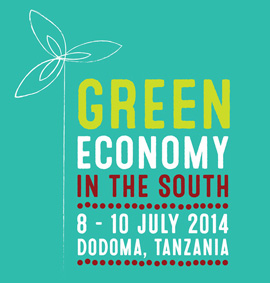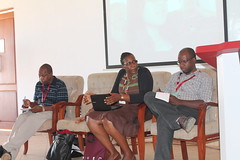The momentum gathering behind the idea and practice of the Green Economy is coinciding with financial instability and continued economic woe in the North, but generally happier economic circumstances in the South. Economies are growing and ‘green economic initiatives’ are part of these changes. Carbon payments, ecotourism, community-based wildlife management, Corporate Social Responsibility initiatives and offsets by mining companies exploiting new resources are all a part of a landscape offering new commodities, opportunities for commercialization and integration into wealth-generating markets. And so too are growing incidents of land (and water) grabbing, displacement and alienation of resources required for wealthy tourists, bitter local conflicts over the locally-defined rules of access to carbon (e.g. firewood) purchased by wealthy northerners, green washing and other harmful activities that either cause poverty, or else distribute the fortune and misfortune of the green economy inequitably. Equally demands for alternatives to market-driven environmental degradation, and for market-dominated solutions are also gaining strength and coherence.
In this context, the three-day international conference ‘Green Economy in the South’ will critically examine these phenomena. The conference builds on a series of sister conferences held in Europe and North America (most recently Grabbing Green and Nature Inc). We are convening it in Tanzania because we want the focus of this conference to be about the growth of the Green Economy in the South, and this conference therefore must be more accessible to Southern speakers, researchers and activists.
In addition to the conference itself, participants will also make optional field trips to sites where interventions of the green economy are unfolding – in carbon forestry, wildlife management and eco-tourism.
The conference will include papers, films, website launches and panels on all topics associated with, but not limited to:
– Carbon forestry
– New forms of wildlife management
– Neoliberal environmental governance
– Eco-tourism
– Green offsets
– Bio-fuels and Agriculture
– Green agricultural growth
– Transgenic crops (GMOs) and patent rights
– Challenges to neoliberal hegemony
– Post-democracy and environmental social movements
– Poverty Reduction and Green Economic Initiatives
– Green CSR in Developing Economy Contexts
– Mining and the environment
– And theoretical initiatives pertaining to all of the above and more



